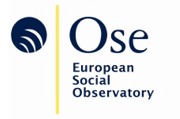The OSE in collaboration with three partners – the Public Policy and Management Institute (PPMI, lead partner), RAND Europe and Kooperationsstelle Hamburg (KOOP) – was awarded a new Framework contract with the European Commission. The purpose of the multiple framework contracts is to assist the European Commission in implementing the Better Regulation Guidelines in its activities. More specifically, these are services supporting DG EMPL on impact assessment, evaluation and monitoring in the areas of employment, social affairs, labour mobility and skills.
Social dialogue
What is the concrete impact of the increased use of ICTs in public services on the content and quality of jobs? This is the central question of the research project that the OSE has just begun for the European Federation of Public Services (EPSU). After reviewing the literature and carrying out targeted interviews with sectorial EPSU delegates, the project will focus on reporting the perceptions of workers themselves about the positive and negative effects of ICT on their work.
What is the concrete impact of the increased use of ICTs in public services on the content and quality of jobs? This is the central question of the research project that the OSE has just begun for the European Federation of Public Services (EPSU). After reviewing the literature and carrying out targeted interviews with sectorial EPSU delegates, the project will focus on reporting the perceptions of workers themselves about the positive and negative effects of ICT on their work.
The OSE was contracted by the European Trade Union Institute (ETUI) to conduct research, which will result in the 18th edition of the joint edited volume. It will feature renowned academic scholars — Daniel Clegg, Amandine Crespy, Maria João Rodrigues, Vivien Schmidt and Mario Telò — as well as OSE and ETUI contributors. Editors: Bart Vanhercke, Sebastiano Sabato and Denis Bouget.
The OSE has started a new research project on “Modernising public administration – The implications for social dialogue and collective bargaining”. The aim of this research – commissioned by the European Federation of Public Service Unions (EPSU) and financed by the European Commission - is twofold. First, we will shed light on the key messages concerning the modernisation of public administration emerging from the European Semester (in particular, from the annual Country-specific Recommendations).
The new PROWELFARE, financed by the European Commission, started in December 2014. It is a two-year project coordinated by the European Social Observatory (OSE) which involves 10 partners (see the dedicated website). PROWELFARE examines the role of social partners - particularly of trade unions - in the provision of welfare protection through occupational schemes. Specific objectives of the project are:
The OSE and the European Trade Union Confederation (ETUC), together with the Institute for Economic and Social Research
The OSE has been contracted by the European Trade Union Institute (ETUI) to conduct research with a view to publishing a book on the “Social developments in the European Union 2011”. Apart from the OSE researchers, the 12th edition of this publication figures authors such as Giuliano Amato and Yves Mény (on the paradoxes around EU institutional developments in 2011), Patrick Diamond and Roger Liddle (on the Eurozone’s fitful search for better economic governance) as well as Christophe Degryse and Philippe Pochet (on the worrying trends in the new European governance).
The European Social Observatory has launched research on "Ensuring an Adequate Pension in a European Context". The aim of the research is twofold: inform decisionmakers about the social consequences of recent reforms in the pension systems of 'old', 'new' and future EU Members States; and shed light on the impact of EU initiatives (OMC, legislation) in the field of pensions on domestic systems.
CAPRIGHT is a European research work funded by the European Commission (DG research, under the Sixth Framework Programme - FP6) and coordinated by Nancy University/CNRS. It aims at the promotion of individual and collective capabilities, studying the relations between labour markets, employment and welfare regimes: the objective of CAPRIGHT is to build an innovative theoretical framework offering a basis for new understandings of these relations.
